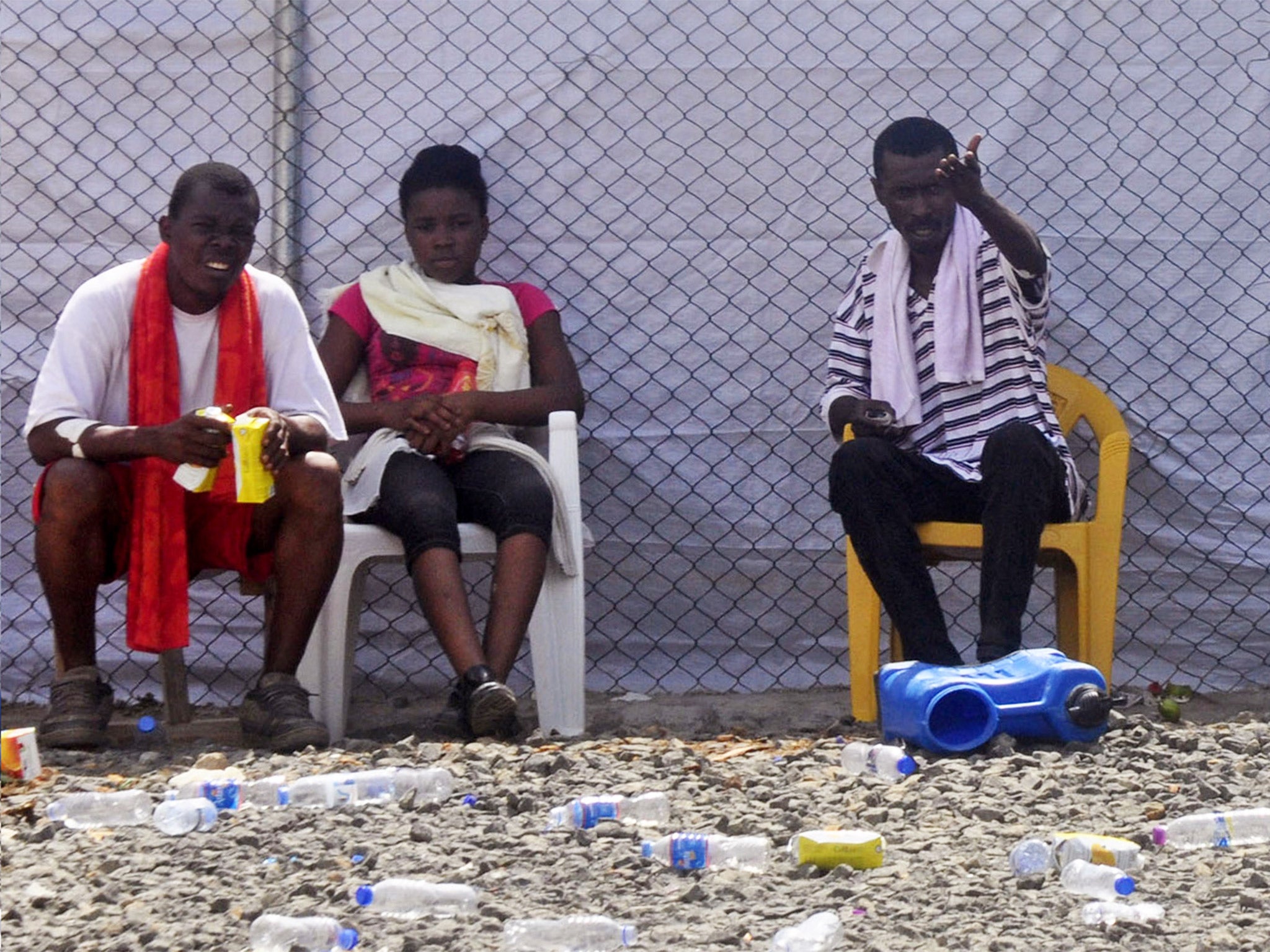Ebola outbreak: Nato must do more to stem crisis, say diplomatic heavyweights
Alliance urged to send hospital ships, heavy-lifting helicopters and medical teams

Nato should intervene to protect millions of West Africans threatened by the Ebola outbreak, a group of more than 40 leading military, political and diplomatic figures has said.
In an open letter signed by two former Nato secretary generals and three former prime ministers of European countries, the military alliance is being urged to send hospital ships, heavy-lifting helicopters and medical teams to help the most seriously affected countries.
The organisation’s “unique capabilities” could “fill gaps” in the current aid mission, a massive logistical operation to get medics and resources to communities in Liberia, Sierra Leone and Guinea, they said.
Coordinated by the London-based European Leadership Network, the letter is signed by General George Robertson and Jaap de Hoop Schefer, both previous Nato secretary generals, along with former UK foreign secretaries David Owen and Douglas Hurd.
The international response to the Ebola outbreak has been spearheaded by the US and the UK, who have both sent military personnel to the region. The UK government committed to increase its funding for the Ebola relief effort by matching the first £5m of any donations the Disasters Emergency Committee is able to raise in an appeal launched today.
The World Health Organisation (WHO) said yesterday that Ebola infections worldwide now numbered 13,703.
The estimate is considerably higher than official figures released only five days ago. It attributed the spike to data collection “catching up” with previous under-reporting.
Dr Bruce Aylward, the assistant director general of WHO, said that while there had been an encouraging drop in the number of new cases recorded in Liberia, infection rates could fluctuate. “There is increasing evidence that these countries can get on top of this and can turn the trends in the disease”, he said. “But they need help doing it.”
Speaking in Brussels, Nato secretary general Jens Stoltenberg said that the organisation was in talks with the UN about the response to the crisis.
“The world reacted too slowly and too late but now real efforts are being made by the UN, by the UK, US and other countries and of course through countries in the region,” he said. “And Nato allies are contributing.”
To donate to the Ebola Crisis Appeal, visit dec.org.uk, call 0370 60 60 900 or post to DEC Ebola Crisis Appeal, PO Box 999, London EC3A 3AA
Join our commenting forum
Join thought-provoking conversations, follow other Independent readers and see their replies
Comments
Bookmark popover
Removed from bookmarks